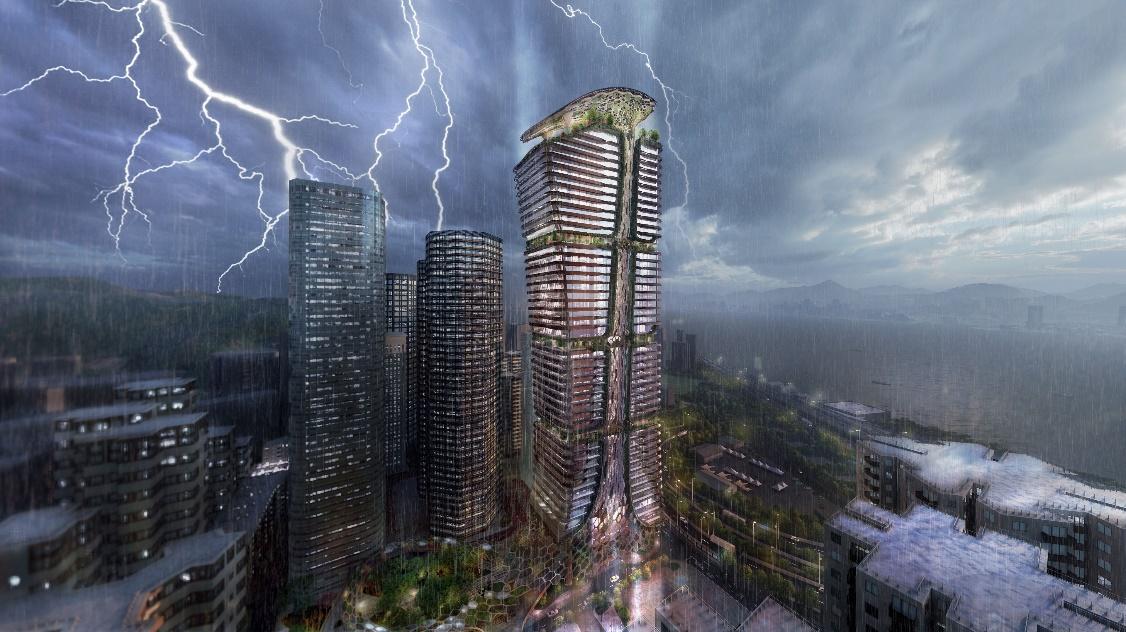Ronald Lu & Partners raises sustainability commitment to limit global warming to 1.5°C
RLP becomes the first architecture practice in China to commit to SBTi’s new Business Ambition for 1.5°C
8 June 2022

9 Jun 2022 – Award-winning architecture practice Ronald Lu & Partners (RLP), known for its sustainable, human-centric and future-ready designs, has stepped up its commitment to reduce operational carbon emissions. The firm has increased their target from 2°C to the new 1.5°C target set by the Science Based Targets initiative (SBTi) in partnership with the United Nations Global Compact.
Besides being the first architecture practice in China to commit to the 1.5°C standards, RLP is also the first architecture practice in Asia to incorporate projects they have designed into their SBTi measurements, ensuring a holistic approach in which both internal and external efforts are included. An industry leader in green architecture, sustainability has been at the core of RLP’s design philosophy since 2000. In 2006, the firm established an independent Sustainable Design Department and since then, over 80% of the practice’s projects have been certified as eco-friendly. These have won a total of 62 sustainability awards to date.
In 2019, RLP became the first architecture firm in China to commit to the 2°C target set by SBTi. They subsequently reduced their carbon emissions by 409 tonnes over the next three years, the equivalent of planting 2,442 trees. The firm has reduced paper waste by 61% and reduced electricity usage by 17%.
In 2022, RLP is launching a series of measures to take their sustainability efforts above and beyond internal operations, to achieve their target of reducing greenhouse gas emissions by 38% by 2028. RLP offices will increase their digitalisation of internal and external processes, and explore new energy-efficient equipment and appliances for daily operations. Regular internal workshops are also being conducted, which aim to initiate behavioural change among all staff and encourage a more sustainable lifestyle both at and outside of work.

The firm will also put in place energy-efficient processes at every stage of the design process – including adopting carbon-saving strategies early on in design work, providing in-house specialist support to formulate these strategies and continuously optimising the carbon performance of projects through the final design stages.
“At RLP we are dedicated to becoming net-zero ready, and to enabling our clients to be so by incorporating an increasing number of sustainable elements into our projects. This job is never complete, and we always strive to use more efficient technologies that will reduce the industry’s environmental impact. Committing to this new target of 1.5°C was a ‘no-brainer’ for us: it’s another way that we are leading by example, showing everyone in our industry how we can contribute to achieving a more sustainable future for the built environment.” Bryant Lu, Vice Chairman
“We work in high-density, rapidly urbanising cities in Asia, and we are conscious of the urgent need to decarbonise our cities and create future-ready designs. More than 190 countries have already committed to the goal of carbon neutrality by 2050 – for this to succeed, every company in every city must adopt net-zero strategies to slow down the rate of global warming and preserve a habitable planet.” MK Leung, Director of Sustainable Design
The SBTi, a global body enabling businesses to set emissions reduction targets in line with climate science, has now reduced its initial 2°C target to limit global warming to 1.5°C. Limiting warming plays a critical role in achieving a sustainable future and curbing the devastating effects of climate change. The difference between 2°C and 1.5°C could mean 11 million fewer people exposed to extreme heat, 61 million fewer people exposed to drought, and 10 million fewer people exposed to the impacts of sea level rise. Additionally, it could halve the number of vertebrate and plant species facing severe range loss by the end of the 21st century.
Besides increasing their SBTi commitments, RLP is also a member of the World Green Building Council, the China Green Building Council, the Hong Kong Green Building Council, and the International WELL Building Institute. The firm has also made pledges to the Hong Kong Business Environment Council’s Low Carbon Charter and Power Up Coalition.